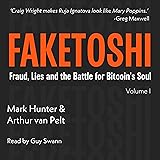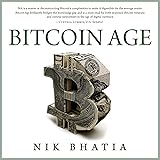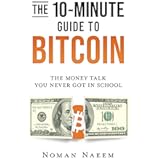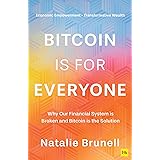Imagine you’re walking through a bustling market, and suddenly, you hear whispers about a brand-new, shiny version of your favorite antique being released. You might be tempted to rush in and grab one, hoping it doubles in value overnight. However, sometimes, what appears to be a golden opportunity can turn into a cautionary tale. This very scenario is playing out in the cryptocurrency world with the upcoming Bitcoin Cash fork on November 15th, an event that has many investors on edge.
As highlighted in the video above, this particular BCH fork isn’t just a simple upgrade; it represents a significant division within the Bitcoin Cash community. Understanding the intricacies of this event, and why it’s crucial to approach it with extreme caution, can help protect your digital assets. While the promise of “double tokens” might sound appealing, history often reminds us that not all forks lead to prosperity.
Understanding the Bitcoin Cash Fork: A Looming Division
A blockchain “fork” might sound complex, but think of it like a divergence in a road. At a certain point, the community supporting a cryptocurrency can disagree on its future direction or technical specifications. This disagreement can lead to the blockchain splitting into two distinct paths, each carrying its own version of the cryptocurrency.
In the case of Bitcoin Cash, the upcoming November 15th fork stems from a contentious proposal known as the Infrastructure Funding Proposal (IFP). This proposal, integrated into the Bitcoin ABC codebase, aims to redirect a portion of the block rewards to fund development efforts. On the other hand, several other BCH full node clients, including Bitcoin Cash Node (BCHN), have chosen not to adopt this IFP feature.
The Two Paths: Bitcoin ABC vs. Bitcoin Cash Node (BCHN)
This fundamental disagreement means that the existing Bitcoin Cash blockchain is set to bifurcate into two separate chains. One chain will follow the Bitcoin ABC implementation, which includes the IFP, while the other will adhere to the BCHN protocol, without the IFP. This effectively creates two competing versions of Bitcoin Cash.
Interestingly, Bitcoin ABC also announced an IFP-free client compatible with BCHN, adding another layer of complexity to the situation. Despite this attempt at compatibility, the underlying ideological split regarding the IFP remains, forcing businesses and exchanges to make a choice. The ultimate goal of both factions is to maintain the ticker ‘BCH’ and the associated market dominance, yet only one can truly prevail.
Exchanges React: What Holders Need to Know About the BCH Fork
Cryptocurrency exchanges play a pivotal role in these fork events, as they hold the majority of users’ assets. Their decisions directly impact what happens to your Bitcoin Cash. As the video mentioned, major players like HitBTC and Kraken have already outlined their plans for the November 15th fork.
HitBTC, for instance, has stated its intention to halt Bitcoin Cash transactions on the day of the fork. Furthermore, they plan to credit users with an additional token *if* a blockchain split occurs, implying a wait-and-see approach before committing to which chain carries the primary BCH ticker. This cautious stance reflects the uncertainty surrounding which chain will ultimately gain majority support and hash power.
Kraken’s Conditional Support for Bitcoin ABC
Kraken, another prominent exchange, has also announced its fork plans, including specific conditions for supporting Bitcoin Cash ABC. They stressed that they would only support Bitcoin Cash ABC if its hash power reached at least 10% of the hash power on the Bitcoin Cash Node network. If this condition is met, the token will be labeled ‘Bitcoin Cash ABC’ with the ticker ‘BAB’ on their platform.
This conditional support highlights the critical role of hash power in determining the viability of a new chain. Hash power, which refers to the total computational power used to mine and process transactions on a blockchain, signifies network security and miner support. Without substantial hash power, a new chain struggles to maintain security and process transactions efficiently, making it vulnerable and often economically unviable.
A History Lesson: Why Caution is Advised with Bitcoin Cash Forks
While the prospect of receiving “free” tokens from a fork might seem enticing, history offers a sobering perspective. The crypto space has seen numerous forks, and not all have resulted in successful, valuable assets. Many new chains, born from controversial forks, have withered and died due to lack of community, developer, or miner support.
The video above rightly draws a parallel to the Monero fork. When Monero underwent its own contentious hard fork, a new chain was created, but it ultimately failed to gain traction and eventually fizzled out. This is not an isolated incident; countless other minor forks have met a similar fate, leaving early speculators with worthless tokens.
The Perils of ‘Free’ Tokens and Diluted Value
The core issue is often a division of resources and attention. When a blockchain splits, the existing community, developers, and hash power are also divided. This fragmentation can weaken both chains, making them less secure, less liquid, and less attractive for future development. Instead of creating two valuable assets, it often results in two weaker, less sustainable ones.
Moreover, the influx of a new token can dilute the value of the original asset, at least temporarily. For a beginner investor, attempting to navigate this volatile period can be extremely risky. It requires a deep understanding of market dynamics, technical analysis, and the political landscape of the crypto community, which most casual investors may not possess.
Navigating the Bitcoin Cash Fork: A Simple Approach
Given the historical precedents and the current uncertainty surrounding the Bitcoin Cash fork, a conservative approach is often the safest. For most investors, particularly those new to cryptocurrency, the recommendation is clear: avoid engaging with the fork directly. This means not actively trading or transferring your BCH around the November 15th deadline.
If your Bitcoin Cash is held on an exchange like HitBTC or Kraken, it is advisable to simply wait for their official statements and actions. Do not attempt to move your funds or engage in speculative trading in the days leading up to and immediately following the fork. Patience is often a virtue in these situations, allowing the market to decide which chain, if any, will emerge as dominant.
Protecting Your Investment During a BCH Fork
For those holding their Bitcoin Cash in a personal wallet, the safest course of action is to do nothing and observe. A wait-and-see approach allows the dust to settle, revealing which chain garners significant hash power and market acceptance. Only after a clear winner emerges, or if both chains prove viable, should any action be considered.
Ultimately, the goal is to protect your investment rather than chase speculative gains from a potentially unstable event. While the crypto world often rewards those who take calculated risks, the Bitcoin Cash fork presents a scenario where the risks significantly outweigh the potential rewards for the average investor. Staying informed and exercising caution will be your best defense against potential losses.







